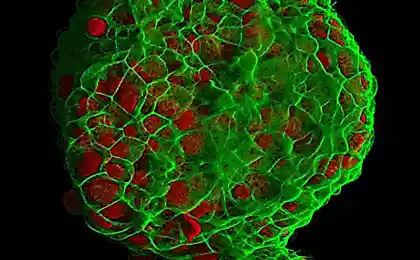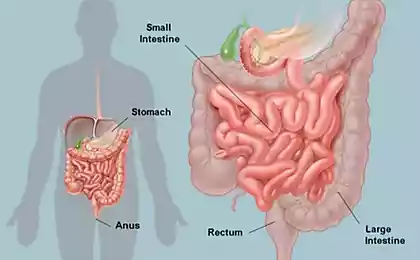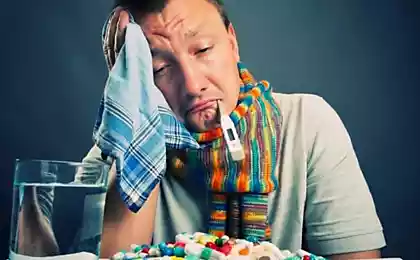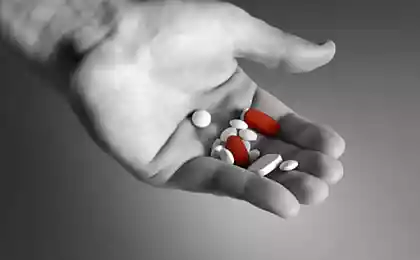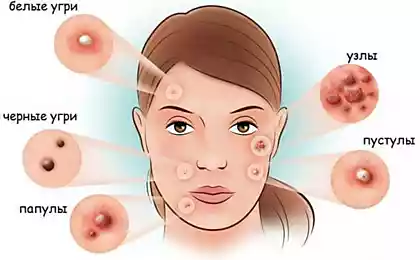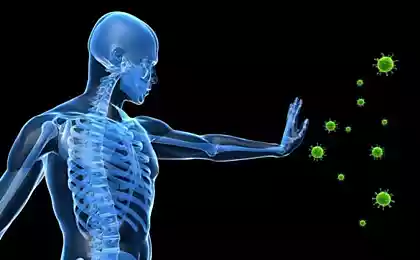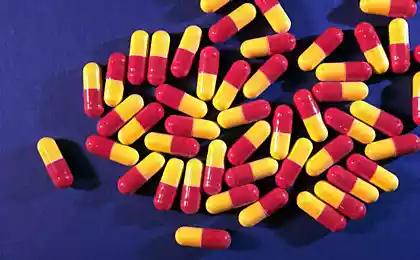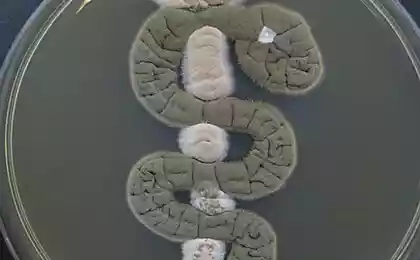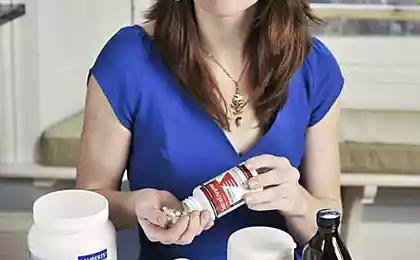554
As corruption is changing the world of microbes
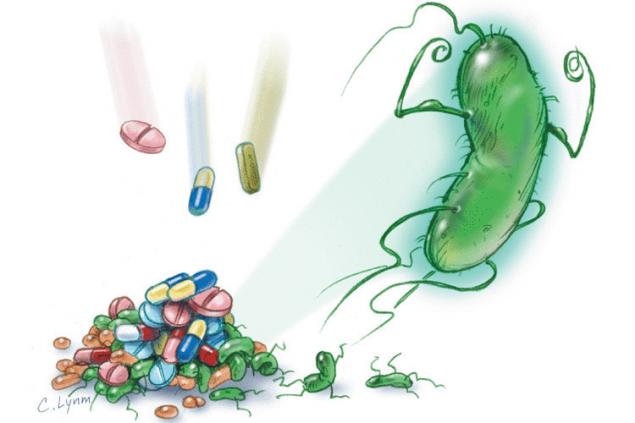
© C. Lynm / The Journal of the American Madical AssociationWhere the winner is the corruption, where antibiotics no longer cure.
It's not the fact that the drugs in countries with a corrupt government is bad, and that bacteria are more resistant; it is called the "resistance effect". A team of authors from the Australian National University led by Professor microbiologist Peter Collingham published in the scientific journal PLoS ONE article entitled: "antimicrobial resistance: poor governance and corruption contribute to this problem, the key contribution."
Dirt in clinics, shortage of syringes and ultrasound or ignorant doctors — is also a consequence of corruption, but in this case it's not about the quality of medical care. The problem with resistance is not going away, even if you can afford the best physicians to deliver drugs by plane from London or just to be treated in London from every cold. Group Collignon argues that bad governance are changing microbes.
For starters — where did the resistance come from? For example, a super-efficient antibiotic leaves alive only one bacterium out of a million. This "one in a million" by random mutation insensitive drug. To reduce the number of microbes a million times — it seems to be a complete victory. But in conditions when all the bacteria-competitors is murdered, it is the offspring of such insensitive mutants will multiply and occupy the whole vacant niche. So the next dose of antibiotic will not kill anyone.
In real life, and the number is not restored instantly, and presistently germs for quite a long time competing for resources with resistant, therefore, the effectiveness of antibiotics decreases not abruptly, but gradually. The first ever antibiotic penicillin, the opening of which in 1945 Alexander Fleming was given the Nobel prize, at the time, was a panacea, and now almost out of use: the majority of bacteria have learned to produce the enzyme penicillinase, which breaks down drug molecules.
It is wrong to think that the worst of the consequences of "weak antibiotics" — an extra two or three days of sitting at home with a thermometer under your arm once a year or two, when the therapist will prescribe you a one-week course of gentamicin. First of all, increase the chances of dying from a sudden of pneumonia in the hospital where you were admitted with appendicitis or a fractured wrist. In addition, the antibiotics are related to problems like asthma, allergies to pollen or cat hair that we would never be linked to infections.
The first ever antibiotic penicillin, the opening of which in 1945 Alexander Fleming was given the Nobel prize, at the time, was a panacea, and now almost out of use.
Group Collignon analyzed the consumption of antibiotics in 28 countries of Western Europe, from Cyprus and Slovenia to the UK, from 1998 to 2010. And separately, the resistance to antibiotics of seven popular infections (Staphylococcus aureus, Streptococcus pneumoniae, etc.) in these countries. Such statistics regularly publishes European centre for disease prevention and control of diseases; data base on resistance is in the public domain, but about Russia, there's nothing there.
For the null hypothesis accepted — as often and not without reason is economic, that in poor countries it's bad and rich is good. In other words, the resistance increasing with falling GDP per capita. Why can talk, of course. Instead of paying for doctor's visit and diagnosis, the poor easier to take a pill for all occasions, that is more or less universal antibiotic and if this doesn't help, go to an appointment. So, the poor will use potent substances indiscriminately, making the bacteria more and more resistant.
But the calculations hypothesis about poverty is not confirmed.
Important detail: most of the antibiotics are not people, and animals that people eat. Antibiotics in large doses are fed to pigs or sheep — and not selectively, with the appearance of dangerous symptoms, all at once, for prevention. To not ill in the future. Therefore, the main incubators of "superbugs" (as it is sometimes called resistant bacteria) is a farm. Almost everywhere there are laws that prevent farmers from abusing prescription drugs for animals. But to violate these laws is beneficial.
Australian scientists have added to their tables, the level of corruption in those same 28 countries. They relied on "Handbook of risk across countries," American компанииPolitical Risks analytical Services, which publishes monthly rankings since 1980. And it turned out that corruption can explain 63 percent of the change in the resistance of microbes from country to country. And only 33 percent of change can be attributed to the total consumption of antibiotics. In other words, the bacteria become immune to drugs, to drink too much of these medicines is not enough — you need to do it haphazardly, in circumvention of the law and in addition paying officials for being forgetful.
First of all, increase the chances of dying from a sudden of pneumonia in the hospital where you were admitted with appendicitis or a fractured wrist.
How to evaluate, how much harm corruption causes to society with resistant bacteria? The study's lead author, Professor Peter Collignon, an expert on so-called nosocomial infections which patients become infected already in the house. According to statistics from the Center for the prevention and control of diseases, this is 1.7 million infections and 99 thousand deaths per year in the US alone. People in hospital are particularly vulnerable: he postoperative wounds and a weak immune system, and around other patients. When you read the obituary of 95-year-old Nobel laureate, he died from pneumonia in hospital, the reason was hardly a walk without a coat: pneumonia is a typical example of nosocomial infection.
The most famous of these infections is MRSA, a type of Staphylococcus aureus. The first two letters in the acronym stands for "methicillin-resistant" means that the germ is not treatable with antibiotics. Resistant version has spread relatively recently: if in 1974 it accounted for 2% of all hospital-acquired Staphylococcus aureus infections in 1995 to 22 percent and in 2004 64.
But even if you firmly believe that you will not end up in the hospital never, the researchers antibiotics still have something to disappoint you.
In addition to harmful staphylococci and streptococci, there are a myriad of good bacteria that live inside us. Their combination is called a microbiome (by analogy with the genome), and the national Institute of health, USA since 2008, is leading the project with a budget of $ 115 million for the decoding of the human microbiome. There is a suspicion that beneficial bacteria not only help digest food, but also ensure the normal operation of various body systems. When in the 1970s, scientists bred mice without a single microbe, from birth living in a completely sterile environment, their physiology was very different from normal.
Japanese immunologist Kenya Honda for several years now proves bacteria of the class Clostridia directly participate in the work of our immune system, which is responsible, for example, a variety of allergies. For example, the same "mice without microbes" are completely absent regulatory T-lymphocytes, regulating the strength of the immune response. If it is not balanced, a microscopic piece of nut can cause a powerful asthma attack and allergies are familiar with this effect. And the beneficial bacteria seems to allow you to calibrate the strength of the reaction.
What unites the beneficial bacteria and harmful — is that antibiotics kill equally those and others. And the microbiome after such a blow is not always restored. In Honda experiments mice received since childhood antibiotic vancomycin, and then increased in animals with increased risk of asthma and allergic diarrhoea. This is not an argument against antibiotics per se — after all, no doctor will allow you to feed a human baby from birth to adolescence potent drug. But the situation where resistant bacteria are forced to use more and stronger antibiotics, the microbiome is doing quite vulnerable, and Honda, to which reference has already more than 14 thousand scientific publications, showed what such vulnerability can in extreme case lead.
So if you believe in corruption-free places you can breathe more freely, perhaps this is just a case of allergic asthma.published
Author: Borislav Kozlovsky
P. S. And remember, only by changing their consumption — together we change the world! ©
Source: www.colta.ru/articles/science/6916
How money affect the atmosphere in the family
How to choose a profession that will be relevant through 5-10-15 years?
